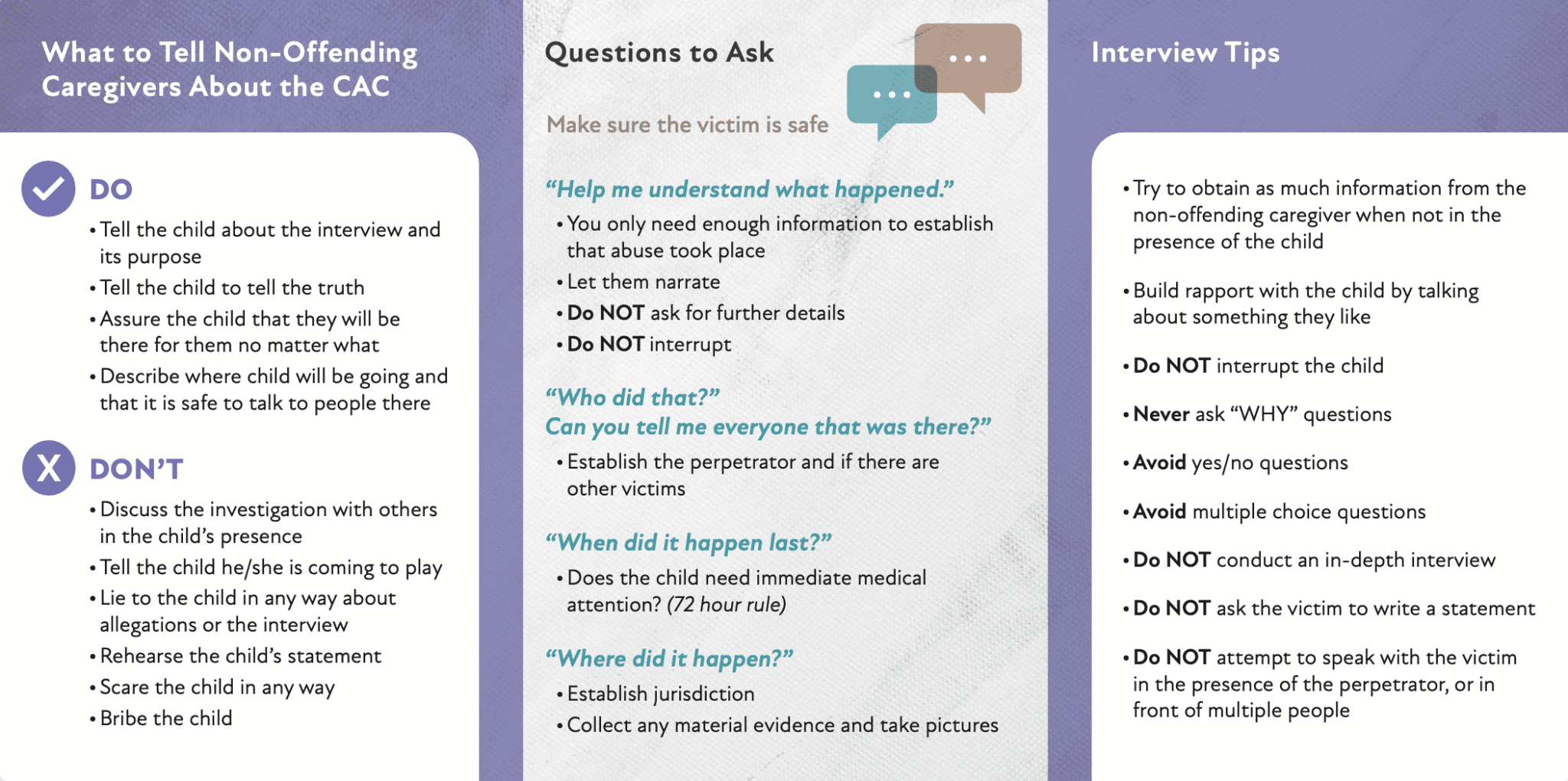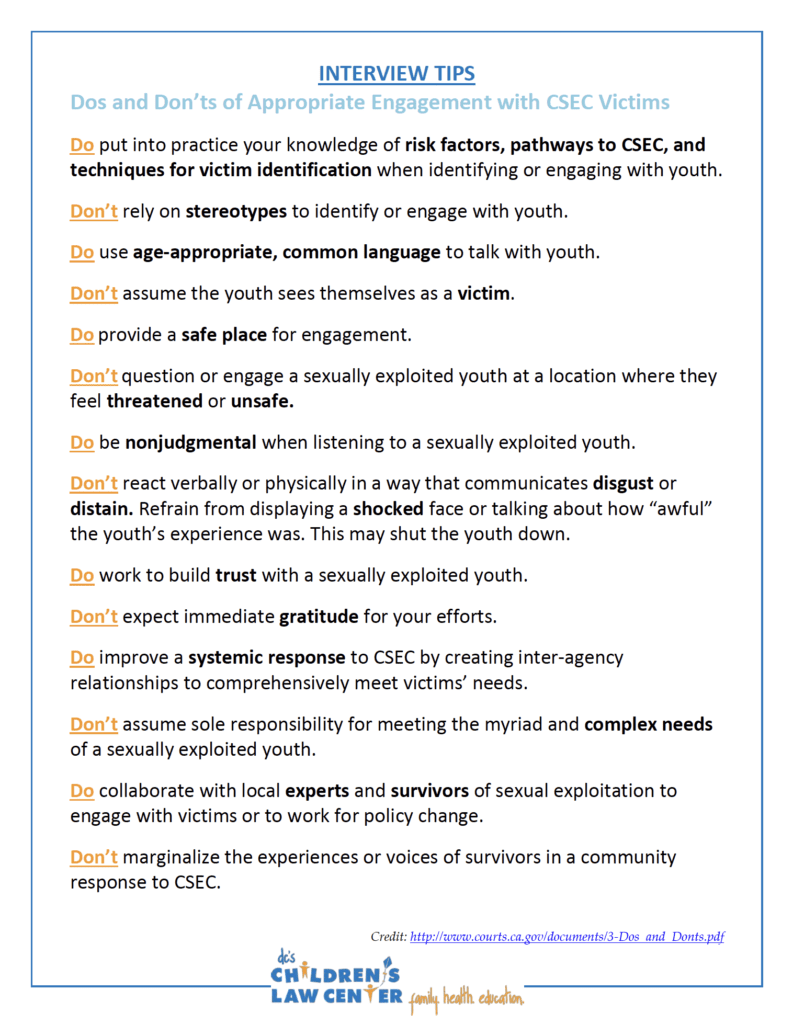Interviews & Investigations
Best Practices, Tips & Information
Interviews with human trafficking and CSAM victims/survivors may require a different approach. Due to trauma experienced by victims and survivors and the importance of trust and rapport, best practices ensure that patience and respect are a priority during interviews. Victims may still be experiencing mental health issues due to the trauma, and need attentive and well-trained interviewers to understand the dynamics of these cases.

Minimal Facts Interview
Following an initial report of alleged child abuse, basic information should be collected to determine whether maltreatment has likely occurred. As part of a multi-disciplinary approach, law enforcement and child protective services must establish contact with the child/adolescent and collect preliminary case information. They assess child and adolescent safety, the risk of imminent danger, and the need for immediate medical attention, generally within a mandated time frame. Often times this information can be obtained through an interview with the caregiver/reporter and the child/adolescent, if needed. The goal is to obtain enough information to determine if abuse occurred and if immediate intervention is needed, by asking minimal non-leading questions. If it is determined that abuse has occurred, it is best practice to refer the child/adolescent to a trained forensic interviewer at a local CAC.
This approach can also be utilized in cases with potential adult victims as well.

Trauma-Informed & Trauma-Sensitive Interviews
To ensure victims and survivors are provided the opportunity to discuss their experiences in a supportive and helpful environment, those conducting interviews must be trauma-informed and trauma-sensitive. This includes ongoing trauma-informed training, an understanding of the effects of trauma, and how all types of traumas can impact victims and survivors’ abilities and approaches to working with MDTs.
More information on trauma-informed care is under the next section.
Interviews and investigations that are trauma-informed will ensure that victims and survivors’ needs, mental health, and safety are at the forefront and take precedence over a prosecution. Victims are in a safe environment where they are listened to, believed, and provided opportunities for breaks and questions. Victims and survivors are given opportunities to voice their needs and concerns, and have mutual power in the interview setting. Interviewers understand that it may take several interviews and meetings to obtain all pertinent case information. Interviewers plan for victims to experience flashbacks, triggers, feelings of shame, and may even have skewed perceptions of boundaries. There is priority placed on rapport building and finding connections to enhance trust and comfortability. Interviewers seek consent for techniques such as taking notes or recording and ensure victims have a well-rounded understanding of the interview goals, purpose, and next steps. Interviewers are honest about limitations and open to answering questions. They are aware of the language and labels they are using with an understanding that it could trigger shame and discomfort. Dynamics such as language, education level, and culture are considered and acknowledged prior to interviews being conducted, as well as prepping with the victim’s advocate. Interviewers understand the importance of giving time for silence during interviews, allowing victims to process their thoughts. Interviewers to do not make promises and do not take victims’ trauma responses personal.
Providers at the CAC are trauma-informed and trauma-sensitive trained and have specific interview training regarding trafficked and exploited children and adolescents


